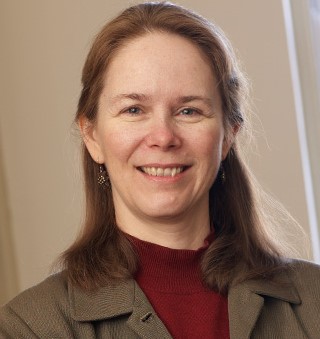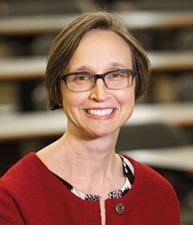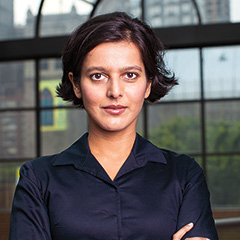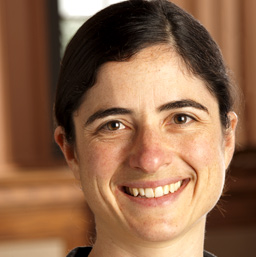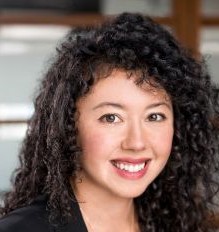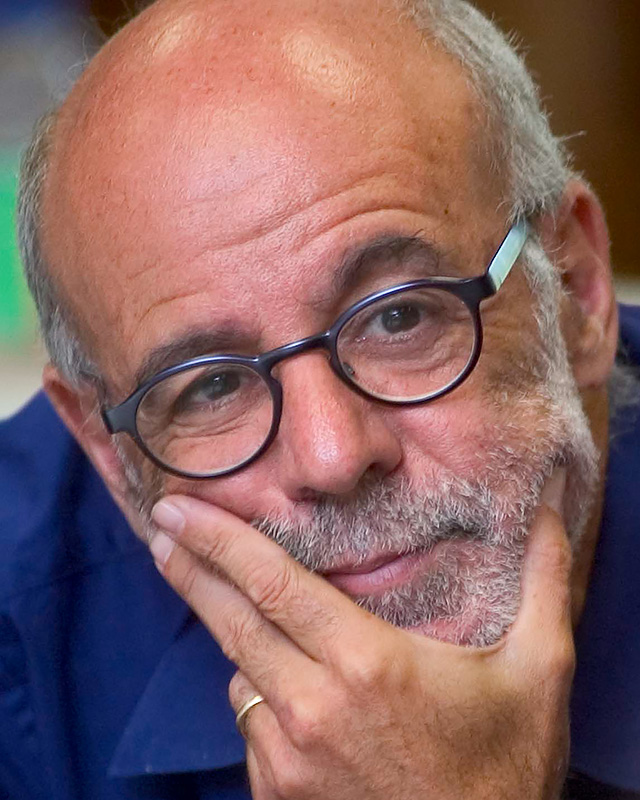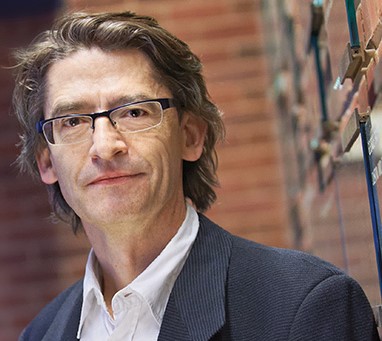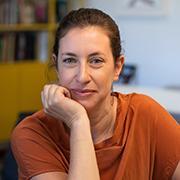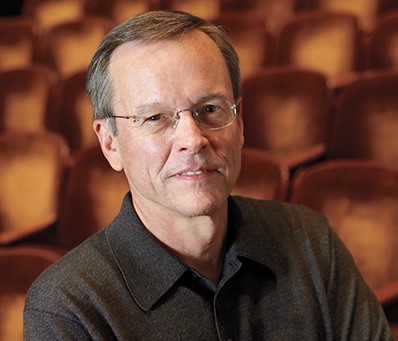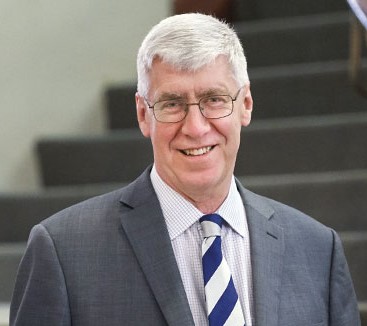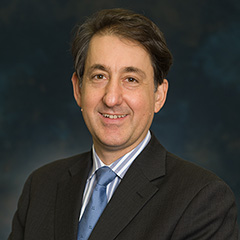Private Law Theory Meets the Law of Work
Academic Orginizers and presenters:
|
Hanoch Dagan |
The Buchmann Faculty of Law, Tel Aviv University |
|---|---|
|
|
Hanoch Dagan is the Stewart and Judy Colton Professor of Legal Theory and Innovation and the Director of the Edmond J. Safra Center for Ethics at Tel-Aviv University. Professor Dagan is a former Dean of Tel Aviv University Faculty of Law and also served as the founding director of the Zvi Meitar Center for Advanced Legal Studies, the director of The Cegla Center for Interdisciplinary Research of the Law, and the Editor in Chief of Theoretical Inquiries in Law. Among his many publications are over 90 articles in major law reviews and journals, such as Yale Law Journal, Columbia Law Review, New York University Law Review and more. Professor Dagan has also written seven books, including Property: Values and Institutions (Oxford University Press, 2011), Reconstructing American Legal Realism & Rethinking Private Law Theory (Oxford University Press, 2013), and The Choice Theory of Contracts (with Michael A. Heller) (Cambridge University Press, 2017). His new book – A Liberal Theory of Property – is forthcoming this year with Cambridge University Press. Professor Dagan has been a visiting professor at Yale, Columbia, Michigan, Cornell, UCLA, and Toronto. Dagan delivered keynote speeches and endowed lectures at Singapore, Alabama, Toronto, Queensland, Cape Town, Monash (Melbourne), and Oxford. He is a member of the American Law Institute and the International Academy of Comparative Law. Dagan obtained his LL.M. and J.S.D. from Yale Law School after receiving his LL.B., summa cum laude, from Tel Aviv University. |
|
Cynthia Estlund |
NYU Law School |
|---|---|
|
|
Cynthia Estlund is a leading and wide-ranging scholar of labor and employment law and workplace governance. Her current work focuses on automation and the future of work. Her latest book, A New Deal for China’s Workers? (2017), takes a comparative look at labor unrest and reform in China. In her previous book, Regoverning the Workplace: From Self-Regulation to Co-Regulation (2010), she chronicled the current crisis of workplace governance in the US and charted a potential path forward. Her first book, Working Together: How Workplace Bonds Strengthen a Diverse Democracy (2003), explored the implications of integration, cooperation, and sociability among co-workers for democratic theory and for the law of work. Other writings focus on freedom of speech and procedural fairness at work; diversity, integration, and affirmative action; critical perspectives on labor law; and transnational labor rights and regulation. Before joining NYU School of Law, Estlund taught at the law schools of the University of Texas and Columbia University. Estlund graduated summa cum laude from Lawrence University and earned her JD at Yale Law School. |
|
Katrina M. Wyman |
NYU Law School |
|---|---|
|
|
Born and raised in Canada, Katrina Wyman has a BA, MA, and LLB from the University of Toronto and an LLM from Yale Law School. Before joining NYU School of Law in 2002, she was a research fellow at the University of Toronto Faculty of Law in 2001-02. Wyman’s research interests relate primarily to property and natural resources law and policy. She has undertaken case studies of the evolution of emissions trading, and property rights in fisheries and taxi licenses. She also has worked on the Endangered Species Act and the policy and legal responses to the possibility that climate change might prompt large-scale human migration. |
Presenters:
|
Aditi Bagchi |
Fordham School of Law |
|---|---|
|
|
Aditi Bagchi teaches Contracts and Labor Law. She writes about the nature of contractual obligation, contract interpretation, and questions in political and moral philosophy as they arise in contract. She has a related interest in the comparative political economy of contract, labor and corporate law. Professor Bagchi previously taught at the University of Pennsylvania Law School. In Fall 2019, she was a Visiting Professor at Yale Law School. Before teaching, she was an associate at Cravath, Swaine & Moore LLP and a clerk for Judge Julio Fuentes on the United State Court of Appeals for the Third Circuit. Professor Bagchi obtained her JD from Yale Law School, an MSc in Economic and Social History from Oxford University, and an AB in Government and Philosophy from Harvard College. |
|
Hugh Collins |
London School of Economics and Political Science (LSE) |
|---|---|
|
|
Hugh Collins has published research in contract law, employment law, European law, legal theory, and human rights law. Book publications include Marxism and Law (OUP); The Law of Contract (4th edn, Butterworths, Law in Context, 2003); Justice in Dismissal (OUP); Regulating Contracts (OUP); A European Civil Code: The Way Forward (Cambridge University Press, 2008); Employment Law 2nd edn (OUP, 2010); Implicit Dimensions of Contracts (with D. Campbell and J. Wightman) (Hart Publishing, 2003); Networks as Connected Contracts (by Gunther Teubner) edited with an Introduction (Hart Publishing, 2011); and Labour Law (Cambridge University Press, Law in Context Series, 2nd edn 2019) with K.D. Ewing and Aileen McColgan; Foundations of Indirect Discrimination Law, ed with T Khaitan, (Hart Publishing, 2017); European Contract Law and the Charter of Fundamental Rights (Intersentia, 2017) Philosophical Foundations of Labour Law ed with G Lester and V Mantouvalou, (OUP, 2018). He is currently Cassel Professor of Commercial Law at the London School of Economics, having previously been the Vinerian Professor of English Law at All Souls College, Oxford 2014-2019, Professor of English Law at the London School of Economics 1991-2014, and a Fellow of Brasenose College, Oxford. He studied law at Oxford and Harvard. He is a Fellow of the British Academy. He served on the editorial committee of The Modern Law Review from 1991-2014, including a period as General Editor. He is co-founder of the European Review of Contract Law and has also served on the editorial committee of the Industrial Law Journal. |
|
Avihay Dorfman |
The Buchmann Faculty of Law, Tel Aviv University |
|---|---|
|
|
Avihay Dorfman is a law professor at Tel Aviv University, Buchmann Faculty of Law. He is a graduate of Haifa University (B.A. Economics `04, LL.B. Law `04) and Yale Law School (LL.M. `06, J.S.D. `08). In 2004-2005, he clerked for The Honorable Aharon Barak, the (then) Chief Justice of the Supreme Court of Israel. He is a winner of the 2011 Alon Fellowship (granted by the Council of Higher Education in Israel), the winner of the 2011-2012 Cegla prize for best law review article published by junior faculty in Hebrew, and a winner of the 2013 Cheshin Prize in the category of junior legal scholar. Dorfman’s primary research and teaching interests include the philosophical foundations of private law, especially torts and property, and theories of political legitimation. His other areas of interests are constitutional rights (in particular, religious liberty). Representative publications are: The Case Against Privatization, 41 Philosophy & Public Affairs 67 (2013) (w/ Alon Harel); Private Ownership and the Standing to Say So, 64 University of Toronto Law Journal 402 (2014); Just Relationships, 116 Columbia Law Review (forthcoming 2016) (w/ Hanoch Dagan); Negligence and Accommodation, Legal Theory (forthcoming 2017) Dorfman was the Chief Editor of the Tel Aviv U. Law Review (Vol. 37-38). |
|
Richard Epstein |
NYU Law School |
|---|---|
|
|
Richard A. Epstein is the inaugural Laurence A. Tisch Professor of Law at NYU School of Law, where he serves as a Director of the Classical Liberal Institute, which he help found in 2013. He has served as the Peter and Kirstin Bedford Senior Fellow at the Hoover Institution since 2000. Epstein is also the James Parker Hall Distinguished Service Professor of Law Emeritus and a senior lecturer at the University of Chicago. He has been a member of the American Academy of Arts and Sciences since 1985 and has been a senior fellow of the Center for Clinical Medical Ethics at the University of Chicago Division of Biological Sciences since 1983. He was a winner of the Bradley Prize in 2011. Epstein has written numerous articles on a wide range of legal and interdisciplinary subjects, as well as over 15 books; his most recent is The Classical Liberal Constitution: The Uncertain Quest for Limited Government (Harvard U. Press, 2014). His next book, The Dubious Morality of Modern Administrative Law (Manhattan Institute), will be published this coming fall. Epstein is at work on the 12th Edition (with Catherine Sharkey) of Cases and Materials in Torts (Wolters Kluwer 2020). He writes a weekly column for the Hoover Institution’s Defining Ideas, and a monthly column for the Las Vegas Journal Review, and appears regularly in the Wall Street Journal, Forbes.com and other publications. He does a weekly podcast, the Libertarian with Troy Senik, a monthly podcast, Law Talk, with Troy Senik and John Yoo, and a regular podcast, Reasonable Disagreements with Adam White. He is also a frequent guest on the John Batchelor Show. |
|
Michael Heller |
Columbia Law School |
|---|---|
|
|
Michael Heller writes and teaches on private law theory, with a focus on property, contract, and land use. A leading property theorist, Heller has written several books, including The Choice Theory of Contracts (2017), with Hanoch Dagan, which has been the subject of several conferences, including one at the Law School. His influential book, The Gridlock Economy: How Too Much Ownership Wrecks Markets, Stops Innovation, and Costs Lives (2008) argues that creating too many property rights can kill markets. He is the editor of the two-volume Commons and Anticommons (2009), and co-editor, with Merritt B. Fox, of Corporate Governance Lessons from Transition Economy Reforms (2006). Heller has also published dozens of articles on legal theory, notably “The Tragedy of the Anticommons” in Harvard Law Review (1998). At Columbia Law, Heller chairs the Academic Fellows Program, the chief post-graduate teaching fellowship for promising scholars preparing for legal academic careers. He also has served as Vice Dean of Intellectual Life. Before joining Columbia Law in 2002, Heller taught at the University of Michigan Law School where he received the L. Hart Wright Award for excellence in teaching. He has been a visiting professor at UCLA School of Law and New York University Law School and a visiting lecturer at Yale Law School. He was a fellow at the Center for Advanced Study in the Behavioral Sciences and a term member of the Council on Foreign Relations. From 1990 to 1994, Heller worked at the World Bank on post-socialist legal transition and housing reform in Eastern Europe and Russia. He served as a law clerk for Judge James R. Browning of the U.S. Court of Appeals for the 9th Circuit. |
|
Sophia Lee |
Penn Law School |
|---|---|
|
|
Sophia Lee is a legal historian whose scholarship synthesizes constitutional and administrative law. She has written about administrative agencies’ role in shaping constitutional law; civil rights and labor advocates’ challenges to workplace discrimination during the early Cold War; and conservative legal movements in the post-New Deal era. Her book, The Workplace Constitution from the New Deal to the New Right, was published in 2014 by Cambridge University Press. Her articles can be found in the Yale Law Journal, the Virginia Law Review, and Law & History Review. She earned her J.D. and Ph.D. in history from Yale. Prior to joining the Penn Law faculty, she clerked for the Honorable Kimba M. Wood of the United States District Court for the Southern District of New York.
|
|
Julia LouiseTomassetti |
City University of Hong Kong |
|---|---|
|
|
Julia Tomassetti is an Assistant Professor at the City University of Hong Kong School of Law. She earned a JD from Harvard and a PhD in Sociology from UCLA, where she worked under the mentorship of Distinguished Professor Maurice Zeitlin. She has been a fellow at the Georgetown University Law Center, Baldy Center for Law & Social Policy at SUNY Buffalo, and Center for Law, Society, & Culture at the Maurer School of Law. Dr. Tomassetti’s research centers on work law, economic sociology, and the political economy of contemporary capitalism. At present, she focuses on disputes that implicate the legal identity of work relationships. Her recent work examines the relationship between employment and the modern business enterprise, and how information technologies shape legal understandings of labor and corporate legitimacy. Before entering the academy, Dr. Tomassetti practiced campaign finance and employment law in New York City. |
|
Sabine Tsuruda |
Queen's Law |
|---|---|
|
|
Sabine Tsuruda is an Assistant Professor at Queen’s Law. She graduated from the Joint JD/PhD Program in Law and Philosophy at UCLA, where she studied as a Charlotte W. Newcombe Doctoral Dissertation Fellow and served as a Senior Editor of the UCLA Law Review. Prior to joining Queen’s, she was a Predoctoral Fellow in Law and Philosophy at UCLA. She also holds a BA in Political Science and a MA in Philosophy from Stanford University. Tsuruda’s research addresses issues in legal doctrine that concern social equality and moral agency. Current research interests include: Employees’ speech and associational rights; The morality of legal norms of managerial control; Equality in religious workplaces; Contract law and distributive justice. |
|
Kate Andrias |
Columbia Law School |
|---|---|
|
|
Kate Andrias teaches and writes in the fields of constitutional law, labor law, and administrative law. Her scholarship probes the failures of U.S. law to protect workers’ rights, examines the efforts of historical and contemporary worker movements to transform legal structures, and analyzes how labor law and constitutional governance might be reformed to enable greater political and economic democracy. Drawing from constitutional law, administrative law, and legal history perspectives, she also has explored the relationship between law and the perpetuation of economic inequality. She frequently provides advice on policy initiatives to legislators and workers’ rights organizations and works on related litigation. Prior to law school, Andrias worked for several years as an organizer with the Service Employees International Union. After receiving a J.D. from Yale Law School, she clerked for Judge Stephen Reinhardt of the U.S. Court of Appeals for the 9th Circuit and for Justice Ruth Bader Ginsburg ’59 on the U.S. Supreme Court. Andrias practiced political law at Perkins Coie and served as associate counsel and special assistant to President Barack Obama and as chief of staff in the White House Counsel’s Office. She joined the faculty of Michigan Law School in 2013 and was the recipient of Michigan Law School’s L. Hart Wright Award for Excellence in Teaching in 2016. She joined the faculty of Columbia Law School in 2021. She also has served as an academic fellow at Columbia Law School and taught American Constitutional Law as a visiting professor at L'Institut d'Études Politiques (Sciences Po) in Paris. She currently serves as a commissioner and the rapporteur for the Presidential Commission on the Supreme Court and sits on the Board of Academic Advisors of the American Constitution Society. |
|
Yishai Blank |
The Buchmann Faculty of Law, Tel Aviv University |
|---|---|
|
|
Yishai Blank is Professor of Law at Tel-Aviv University Faculty of Law, and the Faculty’s Chair of the Graduate Studies Program. Between 2011-2014 he served as the Vice Dean for Academic Affairs. Yishai’s areas of research and teaching include Local Government Law, Administrative Law, Global Cities, Urban Legal Policy, Law and Secularism, and Legal Theory. Professor Blank obtained his LL.B. and an additional B.A in Philosophy (both magna cum laude) from Tel-Aviv University. He clerked for the Chief Justice of the Israeli Supreme Court, Aharon Barak, and practiced law in the leading law firm I. Gornitzky & Co. Professor Blank continued his studies at Harvard Law School, where he was a Byse Fellowship recipient, and where he received his LL.M. in 1999 and his S.J.D. in 2002. He was a member of the Young Scholars in the Humanities and Social Sciences Forum of the Israeli Academy of Science and Humanities, and he is a two-times recipient of prestigious fellowship from the Israeli Science Foundation (ISF). Professor Blank was a visiting professor at Harvard Law School, Cornell Law School, University of Toronto Law School, Queen’s University Law School, Sciences Po Law School (Paris), Brown University, University of Hamburg, and the Oñati International Institute for the Sociology of Law (Spain). Professor Blank’s works have been published in law journals in the United States and in Israel, including Stanford Law Review, Cornell Law Review, North Carolina Law Review, Harvard Journal of International Law, Harvard Civil-Rights Civil-Liberties Law Review, Fordham Urban Law Journal, the Urban Lawyer, Tel-Aviv University Law Review, and Columbia Journal of Transnational Law. |
|
Alan L. Bogg |
University of Bristol Law School |
|---|---|
|
|
Alan joined the Bristol Law School in 2017 as Professor of Labour Law. Previously he was Professor of Labour Law in the University of Oxford and a fellow of Hertford College, Oxford. He has a broad teaching and research interest in the general fields of labour, employment and work laws. He is interested in exploring these areas from philosophical, doctrinal and comparative perspectives. His recent work has used political philosophy to explore problems in the regulation of work. He is also interested in the worker-protective aspects of common law reasoning. His current research projects are examining freedom of association; common law fundamental rights; the role of criminalisation in work relations; and the future of the social democratic constitution. His monograph, The Democratic Aspects of Trade Union Recognition, was awarded the Peter Birks Prize for Outstanding Legal Scholarship in 2010. In 2014, he was awarded the Philip Leverhulme Prize for Law, in recognition of his international profile and achievements as a scholar of labour law. His work has been cited in the United Kingdom Supreme Court (on sham contracts and the illegality doctrine), the Supreme Court of Canada (on the constitutional right to collective bargaining), and the European Court of Justice (on working time and paid annual leave). He is on the editorial committees of the Oxford Journal of Legal Studies and the International Journal of Comparative Labour Law and Industrial Relations. He is also a general editor of the OUP Oxford Monographs in Labour Law series. He is a member of the executive committee of the Institute of Employment Rights, and an emeritus fellow of Hertford College, Oxford. He would be very happy to supervise research students in his broad areas of intellectual interest. |
| Richard R.W. Brooks |
New York University School of Law |
|---|---|
|
|
Formerly the Charles Keller Beekman Professor of Law at Columbia Law School, Richard R.W. Brooks focuses his scholarship on contracts and agency, among other forms of business and social organization. Brooks has published numerous books and articles that analyze behavior through the lens of economics, custom, and law. His most recent book, Saving the Neighborhood: Racially Restrictive Covenants, Law, and Social Norms, (coauthored with Carol Rose) examines the history and enduring legacy of racially restrictive property agreements (or racial covenants), which the Supreme Court ruled unenforceable in 1948. Yet despite this repudiation, racial covenants lived on in real estate records, influencing the behaviors of lenders, insurers and realtors, as well as the beliefs and expectations of homebuyers and sellers. Over time the impact of racial covenants would fade, but their legal and social significance lingered well beyond 1948. Racial covenants, even without formal enforcement, were effective signals, creating “common knowledge” that guided the actions of real estate professionals and ordinary buyers and sellers in the housing market. Brooks’ work also includes articles about contract law and theory, experimental economics, the economics of environmental law, fairness, and perceptions of the legal system. Brooks holds a BA from Cornell University, an MA from the University of California at Berkeley, a JD from The University of Chicago Law School, and a PhD in economics from the University of California at Berkeley. He was a visiting professor at the Law School in 2006 and was most recently the Leighton Homer Surbeck Professor of Law at Yale Law School. He also taught previously at Northwestern University School of Law and at Cornell University in the Department of Policy Analysis and Management. Brooks has served as a visiting researcher at the Center in Law, Economics and Organization at the University of Southern California Law School; on an advisory committee to the Social, Behavioral and Economics Sciences Division of the National Science Foundation; and as a research specialist in the Antitrust Division of the Department of Justice. |
| Kevin E. Davis |
New York University School of Law |
|---|---|
|
|
Kevin Davis is the Beller Family Professor of Business Law at New York University School of Law. His research and teaching generally concern the relationship between law and economic development, with particular emphasis on anti-corruption law, commercial law, and measurement of the performance of legal systems. His publications include over 50 articles or essays, 4 edited volumes, and a monograph, Between Impunity and Imperialism: The Regulation of Transnational Bribery (Oxford University Press, 2019). He has held visiting appointments at Cambridge University’s Clare Hall, Fundação Getulio Vargas School of Law (São Paulo), the University of Southern California, the University of Toronto, and the University of the West Indies (Barbados), and has lectured at many other institutions around the world. Davis joined the NYU law faculty in 2004 and served as Vice Dean for Global Affairs from 2012 to 2017. Before joining NYU, he was a tenured member of the faculty at the University of Toronto, Faculty of Law, worked as an associate at Torys LLP in Toronto, and served as law clerk at the Supreme Court of Canada to Mr. Justice John Sopinka. He holds a B.A. from McGill University, a LL.B. from the University of Toronto, and a LL.M. from Columbia University. |
| William E. Forbath |
The University of Texas at Austin, School of Law |
|---|---|
|
|
William Forbath is among the nation’s leading legal and constitutional historians. His books include Law and the Shaping of the American Labor Movement and the forthcoming The Anti-Oligarchy Constitution. He has written dozens of articles, book chapters and essays on subjects like political, social and economic inequality in American constitutional thought and politics – past, present, and future; social and economic rights in the courts, state institutions and social movements of the Southern Hemisphere. He received his Ph.D. and J.D. from Yale University and holds an A.B. from Harvard and a B.A. from Cambridge. Forbath is on the boards of several local and international public interest and human rights organizations. At LAPA, he will pursue his most recent research interest in Jews, law and identity politics in the early twentieth century. |
|
Mark Geistfeld |
New York University School of Law |
|---|---|
|
|
Mark Geistfeld’s primary teaching areas are torts, products liability, and insurance. He has written extensively on a wide range of tort issues, including Tort Law and Alternatives: Cases and Materials (with Robert Rabin and Michael Green, 10th edition, 2016); Products Liability Law (2011); Principles of Products Liability (2nd edition, 2011); and Tort Law: The Essentials (2008). In “Hidden in Plain Sight: The Normative Source of Modern Tort Law,” 91 NYU L. Rev. (forthcoming Dec. 2016), Geistfeld further develops a new interpretation of tort law based on a reciprocity norm of compensation. His scholarship frequently relies on insurance considerations, and he has been an expert witness in insurance-coverage disputes. Before joining the NYU School of Law faculty in 1991, Geistfeld was a litigation associate at Dewey Ballantine, a law clerk for Judge Wilfred Feinberg of the US Court of Appeals for the Second Circuit, and a litigation associate at Simpson Thacher & Bartlett. He received a PhD in economics and a JD from Columbia University, where he served as editor-in-chief of the Columbia Law Review. |
|
Roy Kreitner |
The Buchmann Faculty of Law, Tel Aviv University |
|---|---|
|
|
Roy Kreitner teaches courses on private law, legal history, and law and political thought at the law school, where he has been on the faculty since 2001. He received an S.J.D. from Harvard Law School, an LL.B. and an M.A. (Comparative Literature & Semiotics) from Tel-Aviv University, and an A.B. from Brown University. He has been a Visiting Professor at the University of Virginia and at the University of Toronto. He is the author of Calculating Promises: The Emergence of Modern American Contract Doctrine (Stanford University Press, 2007). During 2009-2010 he was a fellow at The Radcliffe Institute for Advanced Study at Harvard University and an American Council of Learned Societies Fellow. In 2010-2011 he was a visiting researcher at the Institute for Global Law and Policy at Harvard Law School. |
|
Virginia Mantouvalou |
UCL Faculty of Laws |
|---|---|
|
|
Professor Virginia Mantouvalou has published extensively on human rights and labour law. She works on legal and philosophical aspects of labour rights and other human rights. In her research, she examines issues involving workers’ exploitation, structural injustice, capabilities theory, privacy and free speech at work, protection from unfair dismissal, the right to work, the rights of undocumented workers, prison labour and work in immigration detention, domestic labour, modern slavery. Her research has appeared in journals such as the Modern Law Review, the Journal of Law and Society, Theoretical Inquiries in Law, Critical Review of International Social and Political Philosophy, and the Industrial Law Journal. Her most recent co-edited book on the Philosophical Foundations of Labour Law (with Hugh Collins and Gillian Lester) was published by OUP in 2018. She is currently working on a monograph on 'Structural Injustice, Workers' Rights and Human Rights' funded by the British Academy through a Mid-Career Fellowship. She is Articles Co-Editor of the Modern Law Review, member of the editorial board of the Stanford Studies in Human Rights, Co-Editor of the UK Labour Law Blog and the Studies in Law and Social Justice and was Joint Editor of Current Legal Problems. She has held visiting positions at Georgetown University Law Centre in Washington DC and the Universite Libre de Bruxelles. |
| Thomas W. Merrill |
Columbia Law School |
|---|---|
|
|
One of the most cited legal scholars in the United States, Thomas Merrill teaches and writes about administrative, constitutional, and property law, among other topics. Merrill’s experience in the public and private sectors informs his pedagogy and research. After clerking for Chief Judge David L. Bazelon on the U.S. Court of Appeals for the D.C. Circuit and for Justice Harry A. Blackmun on the U.S. Supreme Court, Merrill was a deputy solicitor general of the U.S. Department of Justice and an associate at the firm of Sidley & Austin LLP, where he also served as counsel for more than 20 years. He has written scholarly articles and several Supreme Court amicus briefs on when and how much weight courts should give administrative interpretations of law in different contexts. He has co-authored (with Henry E. Smith) the casebooks Property: Principles and Policies and The Oxford Introductions to U.S. Law: Property. His seminal journal articles include “Optimal Standardization in the Law of Property: The Numerus Clausus Principle” on the role of information costs in the structure of property law and “The Origins of the American Public Trust Doctrine: What Really Happened in Illinois Central” about the role of public property rights in the development of the Chicago lakefront. For the 125th anniversary celebration of the 2nd U.S. Circuit Court of Appeals, Merrill delivered the annual Hands Lecture, and he spoke on “Learned Hand and Statutory Interpretation: Theory and Practice.” He is currently serving as a co-reporter for the American Law Institute’s Restatement (Fourth) of Property and is finishing a book (with Joseph Kearney) on the history of the Chicago Lakefront, tentatively titled Lakefront: Public Trust and Private Right in Chicago (Cornell U. Press). In addition to Columbia, Merrill has served on the faculties of Northwestern Law School and Yale Law School. He is a member of the American Law Institute and the American Academy of Arts and Sciences.
|
|
Guy Mundlak |
The Buchmann Faculty of Law, Tel Aviv University |
|---|---|
|
|
Guy Mundlak’s appointment is shared with the Department of Labor Studies in the Faculty of Social Sciences (Chair). His research deals with the impact of law on the labor market and the welfare state. More particularly his works centers on the following themes: The relationship between labor law and industrial relations; The internalization of employment standards in economic enterprises and the role of human resource professionals in this process; Constitutional social rights in general, and on the rights to social security and work in particular; The effects of globalization on labor markets, the efficacy of international instruments in responding to the regulatory deficit, looking at both the movement of capital and labor.
|
|
Liam B. Murphy |
New York University School of Law |
|---|---|
|
|
Liam Murphy works in legal, moral, and political philosophy and the application of these inquiries to law, legal institutions, and legal theory. Subjects of his publications range from abstract questions of moral philosophy (for example, the book Moral Demands in Nonideal Theory, 2000) to concrete issues of legal and economic policy (such as the book The Myth of Ownership: Taxes and Justice, 2002, co-authored with Thomas Nagel). A central theme in all Murphy’s work is that legal, moral, and political theory cannot be pursued independently of one another; they are, in fact, different dimensions of a single subject. This theme is evident in his most recent book What Makes Law (2014), which locates the traditional philosophical issue of the grounds of law (the factors that determine the content of the law in force) within broader issues of political theory. Murphy’s current project expands on his recent Frankfurt Lectures at the Goethe University, Frankfurt: “Private Law and Public Illusion.” This research examines contract, property, and tax law from a practice-based or instrumentalist perspective; it argues that the widespread belief that these domains of law must answer to natural moral rights and obligations is a fundamental theoretical mistake that has a crippling effect on our public political discourse. Murphy has been awarded fellowships at Columbia’s Society of Fellows in the Humanities, Harvard’s Society of Fellows, and the National Humanities Center. He has been an associate editor and is now a member of the editorial board of Philosophy & Public Affairs. Murphy was vice dean of NYU School of Law from 2007 to 2010. |
|
Brishen Roger |
Georgetown University |
|---|---|
|
|
Professor Rogers previously was an Associate Professor of Law at Temple University Beasley School of Law. He teaches torts, employment law, employment discrimination, and various labor law courses. Professor Rogers’ current research explores the relationship among labor and employment law, technological development, and economic and social equality. He is writing a book on those questions, entitled Rethinking the Future of Work: Law, Technology, and Economic Citizenship (under contract with MIT University Press). In addition to his law review publications, he has recently written for the Boston Review, the Washington Post Outlook, Onlabor.org, and ACSblog, the blog of the American Constitution Society. Professor Rogers’ scholarship has been cited in landmark decisions by the California Supreme Court and the European Court of Justice. Professor Rogers received his J.D., cum laude, from Harvard Law School and his B.A., with high distinction from the University of Virginia. Prior to law school, he worked as a community organizer promoting living wage policies and affordable housing, and spent several years organizing workers as part of SEIU’s “Justice for Janitors” campaign. |
|
Hila Shamir |
The Buchmann Faculty of Law, Tel Aviv University |
|---|---|
|
|
Hila Shamir is a Professor of Law at Tel-Aviv University Faculty of Law. She earned a S.J.D. and LL.M. from Harvard Law School and a LL.B. from Tel-Aviv University. Shamir teaches and researches in the fields of Employment, Labor, Immigration, and Welfare Law with a focus on issues of human trafficking, gender equality, informal work, and welfare state privatization. Shamir has taught at Georgetown Law School, UC Berkeley, Cornell Law School, and at the Harvard University Department of Government, and was a distinguished visiting scholar at the Institute for Jewish Law and Israel Studies at UC Berkeley (2014-16). Shamir served as Associate Dean of Academic and student Affairs at TAU Law (2017-18). She received an European Research Council (ERC) grant to pursue research on a Labor Approach to Human Trafficking (TraffLab, 2018-2023), seeking to shift anti-trafficking policy, research and discourse, away from the predominant criminal law, border control, and human rights model, and towards a labor based approach to human trafficking that will be primarily focused on the bargaining power disparities that create vulnerability to trafficking. Shamir is also the recipient of a Fulbright Scholarship, the EU Marie Curie Reintegration Grant, the Alon Scholarship for outstanding junior faculty, and of research grants from the Israeli Science Foundation and the Israeli Ministry of Science and Technology. Shamir is member of the Israeli Young Academy. Prior to her graduate studies Shamir served as a law clerk to Justice E. Mazza of the Israeli Supreme Court. Her recent publications include the books Governance Feminism: An Introduction (2018, Minnesota U. Press) and Governance Feminism: Notes from the Field (2019, Minnesota U. Press), the first co-authored and the second co-edited with Janet Halley, Prabha Kotiswaran and Rachel Rebouche, is forthcoming in 2018 with Minnesota University Press. |
|
Frank K. Upham |
New York University School of Law |
|---|---|
|
|
Frank Upham teaches the basic property course, as well as courses on advanced property topics, law and development, and comparative law and society with an emphasis on East Asia and the developing world. His scholarship focuses on Japan and China, and his book Law and Social Change in Postwar Japan received the Thomas J. Wilson Prize from Harvard University Press. Recent scholarship includes “Japanese Same Sex Marriage: Prospects for Change,” “From Demsetz to Deng: The Impact of Forty Years of Chinese Growth on Property Theory,” and “Resistible Force Meets Malleable Object: The Story of the ‘Introduction’ of Norms of Gender Equality into Japanese Employment Practice.” His most recent book, The Great Property Fallacy: Theory, Reality, and Growth in Developing Countries, employs an empirical study of the roles of property rights in development from the English enclosures to contemporary Cambodia. His current project is a comparative study of the interaction of legal doctrine, social and economic structure, and culture in gender discrimination in France, Japan, and the United States. Upham has spent time at various institutions in Asia and works in Japanese, Chinese, and French. He graduated from Princeton University and Harvard Law School and worked as a journalist in Vietnam and as an assistant attorney general in Massachusetts before entering academia. In addition to having taught at NYU School of Law since 1994, he has taught at Ohio State, Harvard, Boston College, and UCLA law schools in the United States, and Tsinghua University in China, Tunghai University in Taiwan, and Kobe University in Japan. |
| Jeremy Waldron |
New York University School of Law |
|---|---|
|
|
Jeremy Waldron teaches legal and political philosophy at NYU School of Law. Until recently, he was also Chichele Professor of Social and Political Theory at Oxford University (All Souls College). A prolific scholar, Waldron has written extensively on jurisprudence and political theory, including numerous books and articles on theories of rights, constitutionalism, the rule of law, democracy, property, torture, security, homelessness, and the philosophy of international law. His books include Dignity, Rank, and Rights (2012), Partly Laws Common to All Mankind: Foreign Law in American Courts (2012), The Harm of Hate Speech (2012), Torture, Terror, and Trade-offs: Philosophy for the White House (2010), Law and Disagreement (1999), and The Dignity of Legislation (1999). Waldron was born and educated in New Zealand, where he studied for degrees in philosophy and law at the University of Otago, and was admitted as a barrister and solicitor of the Supreme Court of New Zealand in 1978. He studied at Oxford University for his doctorate in legal philosophy and taught there as a fellow of Lincoln College from 1980 to 1982. He has since taught at the University of Edinburgh; the University of California, Berkeley; Princeton University; and Columbia Law School. Elected to the American Academy of Arts and Sciences in 1998 and a fellow of the British Academy since 2011, Waldron has given many prestigious academic lectures, such as the Tanner Lectures at Berkeley in 2009, the Holmes Lectures at Harvard Law School in 2009, the Hamlyn Law Lectures in England in 2011, and the Gifford Lectures in Edinburgh in 2015. |
|
Benjamin C. Zipursky |
Fordham School of Law |
|---|---|
|
|
Benjamin C. Zipursky is Professor of Law at Fordham Law School, where he holds the James H. Quinn ’49 Chair in Legal Ethics and has twice served as Associate Dean (2001-03; 2010-13). He has taught as a Visiting Professor at Columbia Law School, Harvard Law School, and Vanderbilt Law School. Professor Zipursky is a leading scholar in torts, jurisprudence, and legal ethics, and has published more than sixty articles and chapters on subjects ranging from punitive damages and conflicts of interest in mass tort litigation to the varieties of pragmatism within legal philosophy. He has lectured extensively in the United States and abroad and is the co-author of a leading casebook, TORTS: RESPONSIBILITY AND REDRESS (3d ed. 2012) (with J. Goldberg & A. Sebok) and THE OXFORD INTRODUCTIONS TO LAW: TORTS (2010) (with J. Goldberg). |



